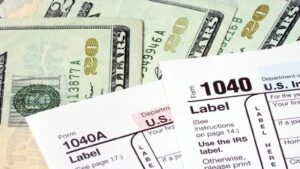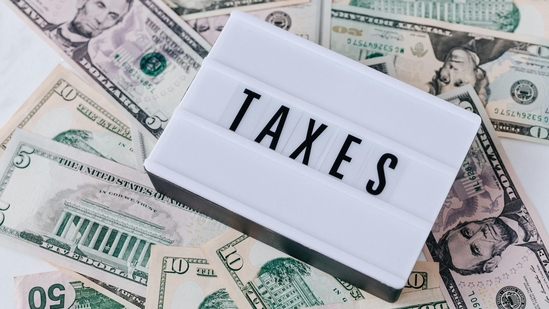Urgent Alert: IRS Tax Refunds Averaging $2,939 Set to Hit Bank Accounts—Are You on the List?
OUrgent Alert: IRS Tax Refunds Averaging $2,939 Set to Hit Bank Accounts—Are You on the List?

The IRS is issuing average tax refunds of $2,939 following the 2024/2025 tax season. Find out if you’re eligible, when you’ll receive your payment, and why your refund might be delayed.
IRS tax refund 2025, average IRS refund 2025, IRS $2,939 payment, tax return delay, IRS refund tracker, stimulus check 2025, tax refund status, IRS payment news
IRS Refund Update: What You Need to Know Before the Weekend

As the 2024/2025 tax season officially wrapped up last month, millions of Americans are now awaiting their federal income tax refunds. According to the IRS, the average refund this year is $2,939, a notable increase from last year. For many households, especially amid rising living costs, this refund can provide a critical financial boost heading into the summer months.
However, not all taxpayers will receive their refunds at the same time—or even at all. Understanding why refunds are issued, who qualifies, and how to avoid delays is essential to ensuring your payment arrives as expected.
Why Are IRS Refunds Issued?

Most U.S. workers have a portion of their income automatically withheld by their employer and sent to the IRS throughout the year. When tax season arrives and you file your return, the IRS reviews what you paid against what you actually owe. If you overpaid, you are eligible for a refund.
In addition to income withholdings, many taxpayers qualify for refundable tax credits such as:
- The Child Tax Credit (CTC)
- The Earned Income Tax Credit (EITC)
- The Additional Child Tax Credit (ACTC)
These credits can reduce the total tax owed and, in some cases, result in a larger refund than expected.
When Can You Expect Your Tax Refund?
If you’ve already filed your taxes and were expecting a refund, there are a few important timelines to be aware of.
You may receive your refund by the end of the week if:
- You filed your return by mail
- You selected paper check delivery instead of direct deposit
These two methods tend to slow down processing by up to eight weeks. If you filed your return near the April 15 deadline, it’s normal to receive your refund in early to mid-June.
To track your status, the IRS recommends using their “Where’s My Refund?” tool on the official IRS website. This tool provides real-time updates on your filing and payment status.
What Could Be Delaying Your Refund?
If you filed early and still haven’t received your refund, there may be underlying issues that are causing delays. These include:
- Outstanding federal or state taxes
- Unpaid child support
- Defaulted federal student loans
- Identity verification issues
In such cases, your refund could be withheld in full or partially offset to settle outstanding debts.
Pro Tip: If you believe your refund is being withheld incorrectly, it’s best to contact the IRS directly to clarify your situation and resolve it before additional penalties or delays occur.
What To Do If You Haven’t Filed Yet
If you missed the tax deadline but still owe or expect a refund, it’s critical to act quickly. Filing late can lead to penalties and interest on unpaid taxes. However, if you’re due a refund, there’s typically no penalty for late filing, but you’ll need to file within three years to claim it.
Even if you’re not required to file due to low income, doing so can allow you to claim refundable credits and receive money back.
IRS Refund in June: Financial Relief or Opportunity?
The average $2,939 refund could serve multiple purposes:
- Paying off credit card or student loan debt
- Catching up on essential expenses like rent or utilities
- Starting an emergency fund or savings account
- Making small investments or home improvements
Regardless of how you use it, this refund represents a financial reset for many Americans.
With billions of dollars in refunds already issued this year, now is the time to double-check your filing status and prepare for your payment. Whether you’re expecting your check this week or still waiting for approval, stay informed by using the IRS tools and contacting them directly if needed.
Have you received your tax refund yet?
Share your experience in the comments below and let others know what to expect.
Want more updates like this?
Subscribe to our newsletter and follow us on social media for breaking news on IRS payments, stimulus updates, and financial tips you can trust.
- “IRS tax forms and refund check on desk”
- “Close-up of IRS refund check and calendar”
- “Person checking tax refund status online”
- “Money and IRS envelope on a Urgent Alert: IRS Tax Refunds Averaging $2,939 Set to Hit Bank Accounts—Are You on the List?











Post Comment